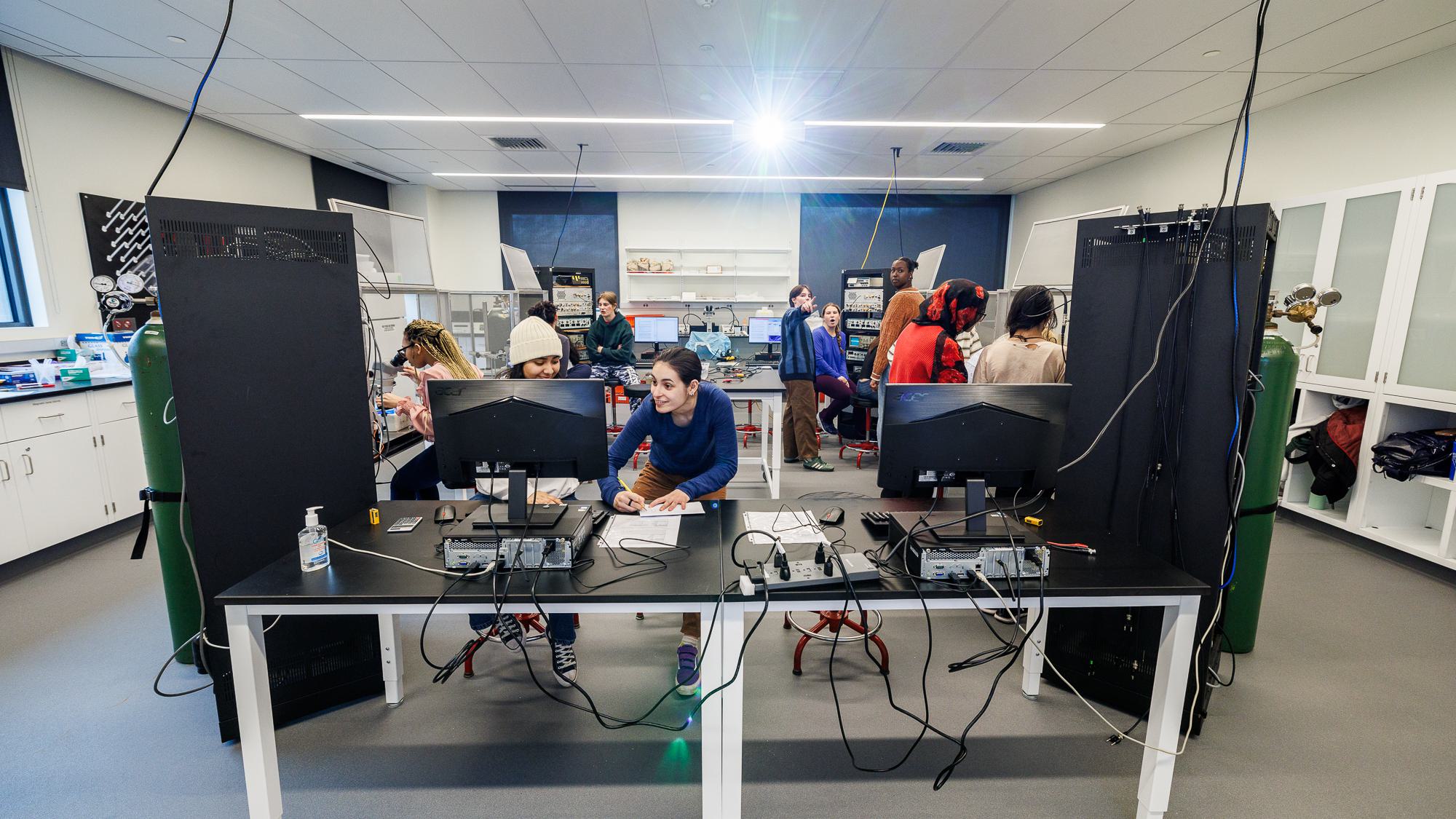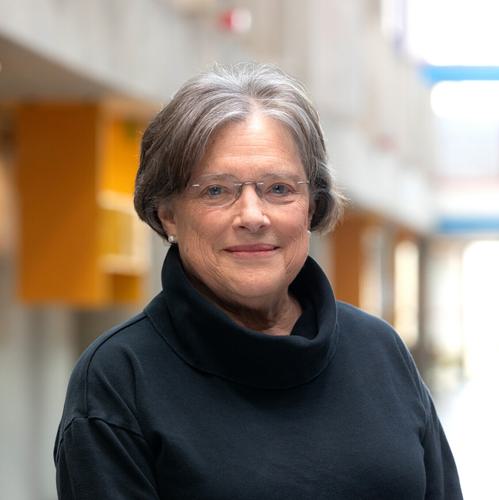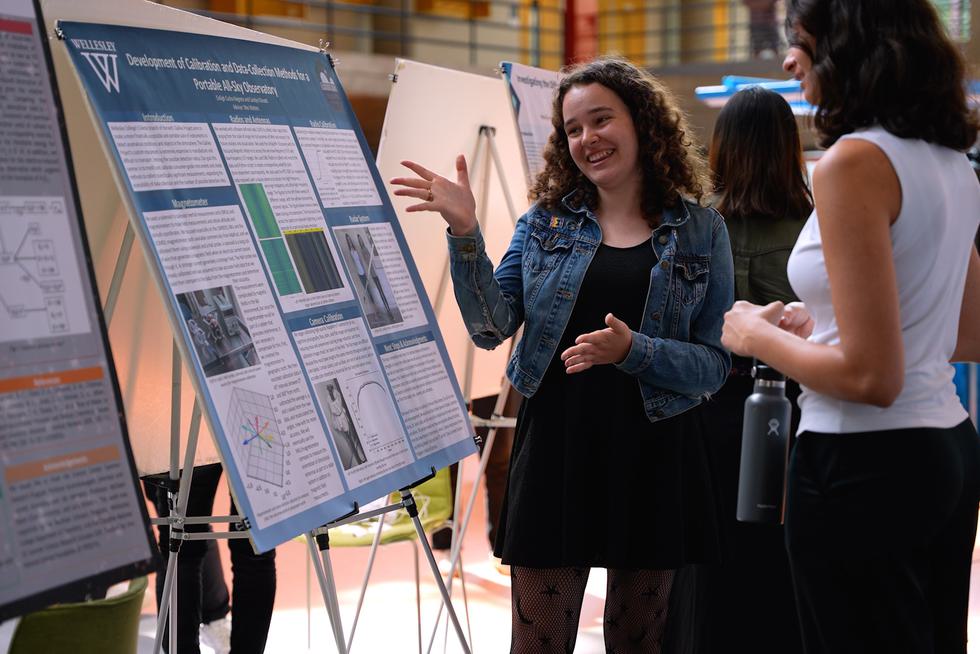Neuroscience
Academic Department Introduction
Neuroscience explores how the brain and nervous system develop and function to generate our conscious experience and guide our behavior. The scope of neuroscience ranges from molecules within individual nerve cells to neural systems that span the brain and body. A student who likes biology, psychology, chemistry, or physics can study and apply all of these in neuroscience. Mathematical and computer models also offer increasingly useful insights into brain function. Our students regularly present at national meetings, including the Society for Neuroscience meeting.
Learning goals
- Develop enough understanding of major neuroscientific concepts and experimental methods to be able to critically evaluate new results in the neuroscience literature and claims in the popular press.
- Appreciate and be able to articulate the societal relevance of discoveries in neuroscience and their potential for improving human health and well-being
Programs of Study
Neuroscience major
Students will take courses in three broad subfields of neuroscience: cellular and molecular neuroscience, cognitive neuroscience, and systems and computational neuroscience.
Course highlights
Research or group independent study: Behavioral Neurobiology
NEUR340
A guided group research project focusing on selected topics from the literature and experimental research methods of neuroscience. Specific topics will vary with each instructor and semester.
-
Current Trends in Neurodegenerative Disease Research with Laboratory
NEUR320
This course will examine primary literature on neurodegenerative diseases. We will discuss primary research articles on various topics including, but not limited to, the underlying pathological mechanisms and clinical symptoms of Alzheimer’s and Parkinson’s disease. Throughout the course we will address aberrant protein aggregation, genetic variants, and therapeutic treatments associated with these two neurodegenerative diseases. The course will consist of student-led presentations of primary research articles, in-class discussions, writing assignments, and a video essay. Learning goals for this course include enhancing scientific literacy, critically examining research inequities, building teamwork skills, and practicing self-reflection.. This course has a required co-requisite laboratory - NEUR 320L. -
Intermediate Neuroscience II with Lab
NEUR202
This course will build on the foundation acquired in NEUR 101 and NEUR 201, focusing on a deeper understanding of specialized topics in neuroscience, including mechanisms of learning and memory, movement control, and cognition. Students will explore how these processes are studied across species and integrated at the systems and computational level. The accompanying laboratory provides experience with widely used neuroscience methodologies including animal behavioral analysis and electrophysiology. Students will learn to effectively communicate their research findings both orally and in writing.. This course has a required co-requisite laboratory - NEUR 202L.
Places and spaces Electrophysiology Lab
In this lab, students in neuroscience and biological sciences learn about the electrical properties of cells, tissues, and brain and heart activity.

Research highlights
Neuroscience majors work with our world-class faculty and participate in substantive projects using cutting-edge equipment.
-

In the lab of Professor Sharon Gobes, students investigate the cognitive and neural mechanisms underlying animal behavior, using songbirds as a model system to study learning and memory.
-

Professor Courtney Marshall’s lab investigates how pathological proteins aggregate, spread, and impair cognitive function in people with Alzheimer’s disease.
-

Professor Marc Tetel’s lab is studying the effects of diet, activity, sleep, and stress on the human gut and vaginal microbiomes.
-

Professor Sara Wasserman’s lab is examining how the brain incorporates different internal and external environments to generate contextually appropriate behavior.
-
In Professor Mike Wiest’s behavioral neurophysiology lab, students record neural activity from behaving rats to characterize neural substrates of attention and perception.
Opportunities and Community
Dedicated to equity, engagement, and belonging, we offer concrete opportunities for all students to join us as valued and respected members of our department. Students have many options to enhance and tailor their academic experience to their unique interests and career goals.
-
Seminars and panels
Prominent neuroscientists regularly speak at Wellesley about their research and work. We benefit from our proximity to Boston’s hospitals, research centers, and biopharmaceutical companies. Participants from Wellesley and beyond discuss and debate vital issues for neuroscientists in academic and non-academic contexts. Recent talks have included “LGBTQ+ in Science” and “Diversity, Equity, and Inclusion in Neuroscience.”
-
Neuroscience Club
The Neuroscience Club is a welcoming community and support network for neuroscience majors, and a forum for all Wellesley students and faculty to learn about neuroscience.
-
Research
We offer excellent research opportunities for students. Whether they are first-years new to lab work or seniors working on a thesis, students collaborate with neuroscience faculty on research projects in our labs. Research students can volunteer, get credit, or apply for a limited number of paid positions for work-study eligible students. In addition, our faculty mentor students in the Summer Research Program and advise students pursuing off-campus research opportunities.
-
Fellowships
Two fellowships support students engaged in research in Francisco Quintana’s lab at the Center for Neurologic Diseases at Brigham and Women’s Hospital, and in leukodystrophy research in the Division of Neurology at the Children’s Hospital of Philadelphia.
Beyond Wellesley
Beyond Wellesley
Most of our majors proceed to medical school or attend top-ranked graduate neuroscience, cognitive science, or psychology PhD programs. Other graduates work in industries that intersect with neuroscience, such as public health, patent law, or education.
Recent Employers






Department of Neuroscience
106 Central Street
Wellesley, MA 02481











